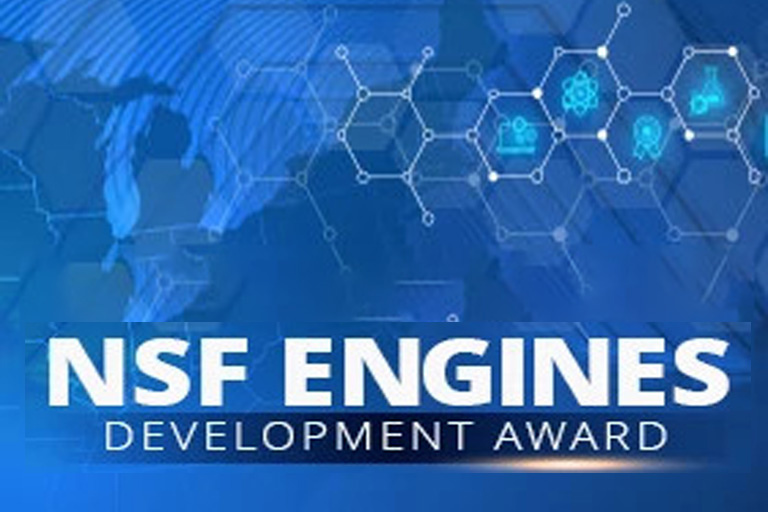
KCTCS part of team receiving $1 million NSF Engines Development Award
 The Kentucky Community and Technical College System (KCTCS) is part of the team from
Kentucky and Tennessee that has been awarded $1 million from the U.S. National Science
Foundation's Regional Innovation Engines, or NSF Engines, program.
The Kentucky Community and Technical College System (KCTCS) is part of the team from
Kentucky and Tennessee that has been awarded $1 million from the U.S. National Science
Foundation's Regional Innovation Engines, or NSF Engines, program.
The GAME Change team is among the more than 40 unique teams to receive one of the first-ever NSF Engines Development Awards. This Type-1 award provides two years of funding for planning to help partners collaborate to create economic, societal and technological opportunities for their regions, setting them up to pursue an NSF Engine Type-2 award of up to $160 million – the largest award ever offered by the NSF.
The coalition of research, education, economic development, industrial and manufacturing leaders of the Southeastern Commerce Corridor (SCC) of Kentucky and Tennessee under GAME Change aims to create a diverse innovation and talent development hub that secures U.S. competitiveness in Next-Generation Manufacturing (NGM) and supply chain logistics, supports closed-cycle manufacturing to reduce waste and increases efficiencies across sectors including automotive, aerospace, energy, food and beverage, and materials.
“KCTCS is proud and honored to be part of this team,” Acting KCTCS President Larry Ferguson said. “Because we serve all areas of Kentucky, we have a good understanding of the needs throughout the Commonwealth and how this award can spur growth in next-gen manufacturing. We educate and train students for these highly technical careers and look forward to working with our partners to increase Kentucky’s competitiveness.”
GAME Change is centered in the SCC, including the I-65 and I-75 thoroughfares and the promising high-growth centers of Louisville, Lexington, Nashville, Knoxville and Chattanooga that outline an Appalachian region in need of greater connectivity and economic resiliency. GAME Change’s leadership includes four R1 universities with strong manufacturing research expertise, three doctoral institutions, an R2 HBCU, a national laboratory, more than 30 community and technical colleges, and Kentucky and Tennessee counterpart representatives of state government and tech-based economic development organizations. The leadership is supported by more than 50 other collaborating partners across Kentucky and Tennessee, including more than 20 companies representing multiple industries in the region.
"These NSF Engines Development Awards lay the foundation for emerging hubs of innovation and potential future NSF Engines," said NSF Director Sethuraman Panchanathan. "These awardees are part of the fabric of NSF's vision to create opportunities everywhere and enable innovation anywhere. They will build robust regional partnerships rooted in scientific and technological innovation in every part of our nation. Through these planning awards, NSF is seeding the future for in-place innovation in communities and to grow their regional economies through research and partnerships. This will unleash ideas, talent, pathways and resources to create vibrant innovation ecosystems all across our nation."
The awardees span a broad range of states and regions, reaching geographic areas that have not fully benefited from the technology boom of the past decades. These NSF Engines Development Awards will help organizations create connections and develop their local innovation ecosystems within two years to prepare strong proposals for becoming future NSF Engines, which will each have the opportunity to receive up to $160 million.
Launched by NSF's new Directorate for Technology, Innovation and Partnerships and authorized by the "CHIPS and Science Act of 2022," the NSF Engines program uniquely harnesses the nation's science and technology research and development enterprise and regional-level resources. NSF Engines aspire to catalyze robust partnerships to positively impact regional economies, accelerate technology development, address societal challenges, advance national competitiveness and create local, high-wage jobs.
Learn more about the project here:
